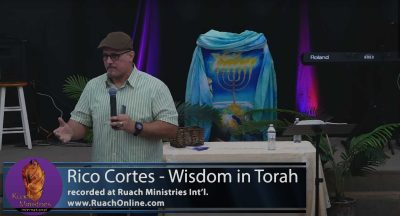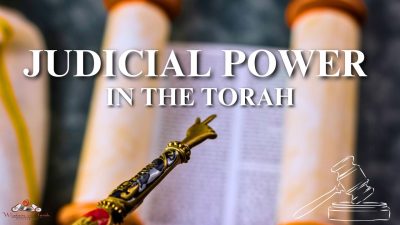
Don't Forget to Share!
Did you know? Why the Decree for adultery is so hard for the Israelites? Death
Did you know? that is all connected to mount sinai?
Numbers 5:11
The LORD spoke to Moses, saying: 12 Speak to the Israelites and say to them: If any man’s wife goes astray and is unfaithful to him
Commentary:
Bbroken faith with him Hebrew maʿalah bo maʿal.
This is the only time that the term maʿal is used outside the sacred sphere of sancta and oath violations, where the object of maʿal is invariably the Deity. Here its usage in connection with the betrayal of the husband bears a literary rather than legal character. Just as the term berit, “covenant,” is at times used by the prophets for the marriage relationship (cf. Ezek. 16:8; Mal. 2:14), where no oath of marital fidelity is actually involved, so here maʿal has a figurative meaning.
The unfaithful wife is a recurring prophetic image for Israel’s infidelity to God (e.g., Hos. 2:4–22; Jer. 3:8f.; Ezek. 23:37). Moreover, maʿal is used in priestly texts for idolatry (cf. Lev. 26:40; Num. 31:16). Since maʿal denotes straying after other gods, its extension to straying after other men is obvious. As the only term used in common in the laws of oath violation (5:6–8) and the laws of adultery (5:11–31), it provides the link between these two otherwise unrelated cases.31
Milgrom, J. (1990). Numbers (p. 37). Philadelphia: Jewish Publication Society.
If a man’s wife goes astray (5:12). This particular case concerns a woman suspected by her husband of having an adulterous affair.41 In Mesopotamian as well as biblical law, if a man or a woman was caught having intercourse with another’s spouse, they were both executed. In Law 129 of the Code of Hammurabi, the man and woman were to be bound together and thrown into the river.42 A trial by ordeal places punishment in the hands of God for a case of unapprehended adultery.43 Westbrook argues that the ancient Near Eastern societies shared a set of legal traditions, among them marriage and divorce codes.44 See sidebar on “Suspected but Unobserved Adultery”
Walton, J. H. (2009). Zondervan Illustrated Bible Backgrounds Commentary (Old Testament): Genesis, Exodus, Leviticus, Numbers, Deuteronomy (Vol. 1, p. 347). Grand Rapids, MI: Zondervan.
The key to the answer lies in the fact that the guilty woman did not go apprehended by man. That this element is the most significant in her case is shown by the fact that it is cited four times in her indictment, each in a different manner: (1) “unbeknown to her husband”; (2) “she keeps secret” (or “it was done clandestinely”); (3) “without being apprehended”; (4) “and there is no witness against her” (v. 13). These clear redundancies, among others, lead one critic to assert that their purpose is “to give weight to what might (and all too correctly!) be seen as a transparent charade … to protect the woman as wife in the disadvantaged position determined for her by the mores of ancient Israel’s society.”4 This stylistic inflation, however, may have been deliberately written with a judicial purpose in mind: to emphasize the cardinal principle that the imapprehended criminal is not subject to the jurisdiction of the human court. Since the adulteress has not been apprehended—as the text repeats with staccato emphasis—then the community and, especially, the overwrought husband may not give way to their passions to lynch her. Indeed, even if proved guilty by the ordeal, they may not put her to death. Unapprehended adultery remains punishable only by God, and there is no need for human mediation. The punishment for this sin against man (the husband) and God is inherent in the ordeal.
Milgrom, J. (1990). Numbers (pp. 349–350). Philadelphia: Jewish Publication Society.
Oops, this is members-only content
This page requires at least a Basic level membership to access the teaching.
Audio
Oops, you don't have access to this content
Resources
The following is a list of recommended resources for this teaching:
- More resources coming soon...
Categories
1 thought on “Did you know? Torah Portion Naso”
Leave a Comment
You must be logged in to post a comment.







I like this teaching but I think it would have been A LOT more effective to present it from another perspective. The church today continues to miss the very foundational aspect on which this commandment and protocol are built. The (seemingly) harsh penalty for an adulterous woman (when there is nothing mentioned about the adulterous man), is seen today by many as unfair and unjustified. (The similar examples like this in the Old Testament is what turns people off about the O.T. – because they don’t understand). Much more was required and “expected” from a man and in which there were heavy consequences including the shame of a “bad reputation” which tended to keep a man “in line” since he would not want to live with these labels. From my understanding even among pagan cultures, there was an accountability, as these were societies of honor and shame in which “your word was your bond” and a covenant actually meant something. Today as we know, a handshake or an ” I do/I will” means very little- even among the peoples of our King- YHVH. Can we be honest here? Today’s biggest culprit of idolatry, lust and adultery are no longer statues and alters but rather distraction and entertainment which now live as commonplace in the hearts and minds of the majority of men. (This is not to say this does not affect women). But I would contend that these are now the distractions that break Covenant today and which are mostly a “silent” male issue rarely addressed by the Church. I would submit that to present this teaching in the fullness of its truth, is to present it relevant to the world we are actually dealing with now. This is exactly what Yeshua did in his time. Can we today, without great hypocrisy, present this chapter from Deuteronomy on the story of an adulterous woman, correctly making the Covenant connection between Israel and her God, but not say one word about its correlation between the covenant of a man and his spouse? This is why outsiders see us as hypocrites. This is one of the biggest issues we face today. Yet not one word. Yes, Covenant is of “legal” issue. But at the root, it is a heart and soul- honor/dishonor issue. And Yeshua thought it was important enough to address. I believe Paul understood this too when he spoke “Husbands, love your wives as Christ loved the Church…and gave himself up for her”. He wasn’t speaking some kindly sentimental words. He understood Covenant. He was essentially saying: Your covenant behavior towards her should be likened to how Christ loves you and keeps covenant with you also. This is HUGE. Why aren’t we teaching this relative to our issues today? I don’t know. Easier just to teach about the adulterous “bride” I guess. Just my take, but to present it any other way in light of our current societal trend, seems a bit one-sided to me.